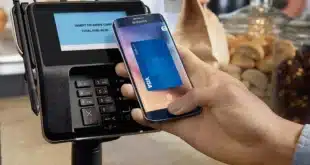Money transfers can bring in new customers, new revenue, and repeat business, but only if the service provider has your back, says Merrick Theobald.
If this all makes it seem that entering into international electronic payment services is complicated, it’s not.
Merrick Theobald is vice president for marketing at iSend LLC, Middlebury, Conn.
The World Bank estimates that, in 2012 alone, the 215 million people who currently live outside their countries of birth will transfer roughly $374 billion to family members back home. That number is expected to increase steadily as more and more people migrate from developing countries for better economic opportunities abroad, and for the foreseeable future their top destination will continue to be the United States.
The fastest-growing offerings targeting migrant wage-earners include electronic payment services that allow spending for specific purposes, such as cross-border bill payment, mobile-phone top-up, and international gift cards. Rather than representing simple bulk transfers, these services empower breadwinners to manage family finances long-distance, making sure that their money goes exactly where it’s needed, when it’s needed.
Payment for these cross-border electronic services is commonly arranged in simple cash transactions at the service counters of grocery stores, convenience stores, check cashers, and other retailers, with the actual payment executed by an international payment-service provider the retailer has partnered with.
Get Answers
There are many good reasons that retailers should consider getting into international consumer payment services. For most that do, it means new revenue streams, increased cash flow, and a quick return on investment, with little impact on overhead.
There are also many good reasons to make sure the international payment- service provider being considered will be a solid partner.
Make no mistake. Retail-customer satisfaction—and the ultimate success of these offerings—have everything to do with how the payment provider executes. It’s critical to revenue streams that customers making payments return regularly for repeat transactions, and that happens when transactions have as few complications as possible and when any glitches are addressed promptly and professionally.
Before engaging with any international payment provider, be sure to get satisfactory answers to these six questions:
1. How is the payment provider financed? Make sure the provider has cash on hand to cover the services it’ll deliver to you. Research the company. If it’s not publicly traded, ask for financial statements and search online for information about financing it has received, along with evidence of stability and strength. If a customer pays money for something that nobody actually receives because the payment provider can’t fund transfers, you could be left holding the bag, as you’re the customer interface.
2. What customer service does the provider cover? There are actually several questions packed into this one. While you’ll be the customer-facing component in offering international payments, does the payment provider have your back? Does it provide first-tier or second-tier support, and what’s the response time? Will you get an immediate receipt with internal code when each transaction is completed? Does the provider deliver backup proof of transfer if a customer claims that a transfer was never actually completed?
3. What’s the provider’s service uptime? If the provider’s service is down at the time you take payment, the cross-border transaction can’t be immediately completed, and you’ll have no receipt to give to the customer. The best providers have service uptime above 99.9%. How does the provider guarantee uptime—what’s the infrastructure, the redundancy, and the backup?
4. What marketing support does the provider offer? As international payments are retail offerings with no merchandise to display, customers need to be made aware that you offer them. Does the service include quality items to promote in-store awareness—shelf-talkers, posters, static clings for the front door, flyers that a customer can take home or pass around? Partners that take a genuine interest in your success will provide meaningful in-store merchandising at no cost to you, as well as basic training and instructional material for personnel who will handle the transactions.
5. What’s the provider’s service footprint? If a payment provider focuses only on Mexico, for example, you may find yourself turning away substantial business. The more popular destination countries the payment provider covers, the more cash you can take in without the need for multiple partners. Even if you believe you’re initially interested in only a few destinations, make sure you’ll have the ability to expand if the need reveals itself.
6. How is the service implemented at retail? Different payment providers implement their services in different ways, some with PC-based network interfaces, others with Web or terminal interfaces, and still others with options according to retailer needs. If you can implement international payments using the infrastructure you already have in place, you’ll eliminate expense and the need to modify your business practices for service adoption.
High-Margin Revenue
If this all makes it seem that entering into international electronic payment services is complicated, it’s not. It’s simply that there are many providers to choose from, and you’ll want to make sure that the one you partner with is compatible with your own business models and capable of satisfying your business—and your customer—needs.
Most retailers that do add international payments to their service offerings find that the services provide high-margin revenue streams with very little investment or effort required. If the services are done properly, adding them to existing service-counter offerings requires no new equipment, no additional personnel, and no additional space. All that while drawing in new customers who will often have a need for your retail offerings beyond international payment services.





